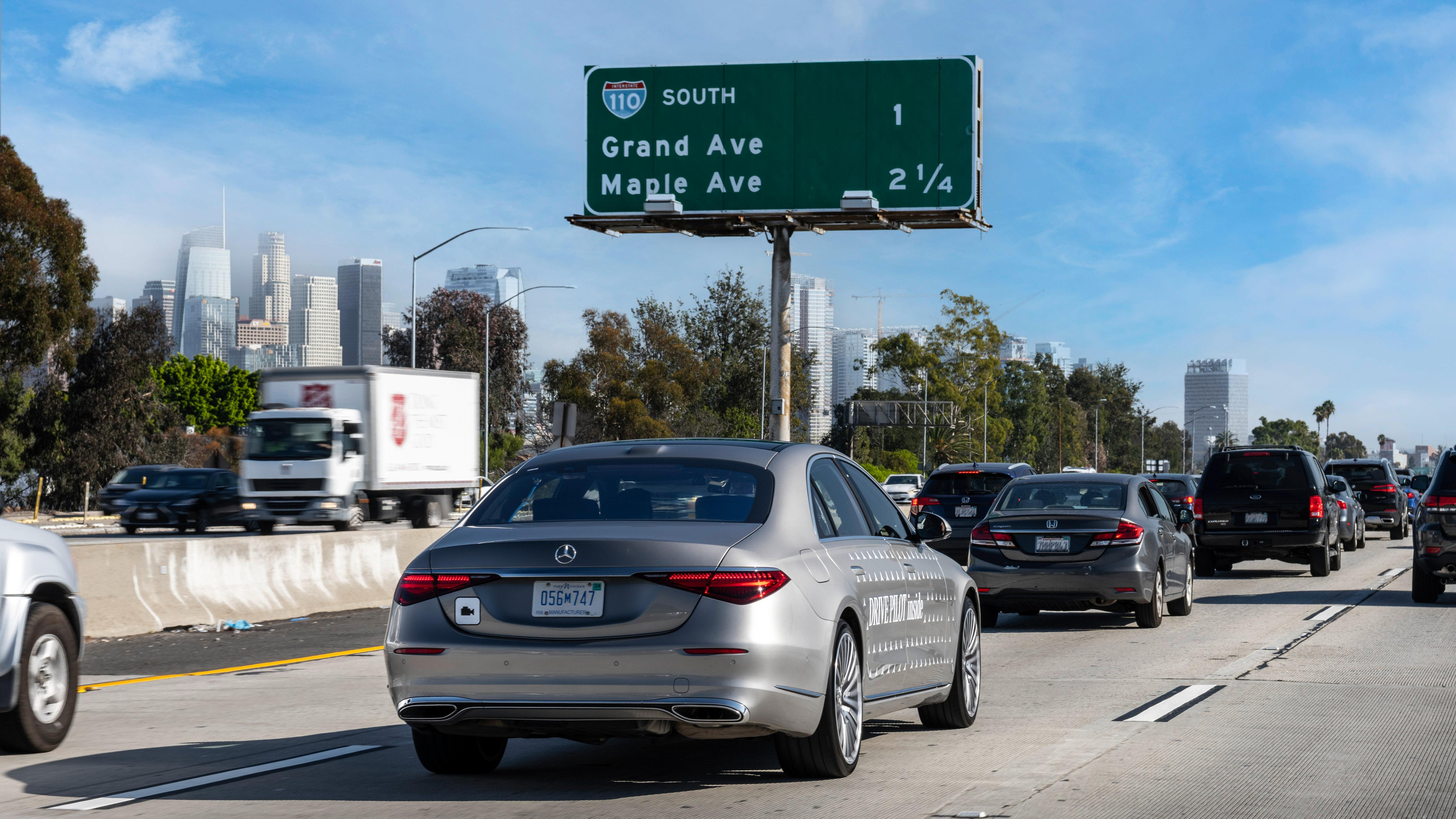Mercedes-Benz 'Drive Pilot' Is A Small Step Towards Truly Autonomous Vehicles
The tech sounds like glorified adaptive cruise control, and that's a good thing
Do you know how world-changing technology actually grabs a foothold in our society? It isn't using customers as beta testers of wildly dangerous technology; it's small incremental advances that add up to a huge difference. This is the tact that Mercedes Benz is taking with autonomous features in its new vehicles.
Enter Drive Pilot, which became the first autonomous system to receive a Level 3 rating from the United Nations Economic Commission for Europe in December of last year. It's not available in the U.S., but Mercedes is testing it in California. The automaker took a few auto journos out for a spin in crushing LA traffic to show off its latest technology.
Drive Pilot only works on well-defined divided highways with no road construction or any other impediments like toll booths. It must be day, and the weather has to be generally favorable for everything to work perfectly, which is the only way it works at all. The car won't change lanes, either, or go over 40 mph.
So, a system that automatically drives a car that works on sunny, clear days for stop-and-go traffic? Sounds like the perfect technology for rush hour conditions on California's infamous Santa Monica freeway. Our buds over at Autoblog agree:
On a short drive (as a passenger) in a new S 580 4Matic along the choked Santa Monica Freeway (aka "the 10"), the Drive Pilot system comported itself flawlessly – essentially acting like the smartest of adaptive cruise controls. If the driver wanted to compose an e-mail or watch a video, the system allowed it. No need to keep a token finger on the wheel in order to stave off a warning every 15 seconds. Our "driver" – Lucas Bolster, Mercedes R&D's principal engineer of automated driving – says Drive Pilot has driven him hands-free and eyes-averted through a 65-minute rush hour on this same stretch of road. In our brief demo, acceleration and braking was smooth, without any lurching stops, and there was no ping-ponging between the lane markers. It was the best kind of chauffeur.
At one point, a lane-jumper hinted at making inroads into our right-rear quarter-panel. The Drive Pilot adroitly swerved to the left-hand side of the lane. The system will take the car to the farthest edge of the lane marking, but will not change lanes if the other car's incursion is insistent (that is a future development that Mercedes says is achievable). If a car intrudes in front of you, the Mercedes will politely make way. It won't honk the horn in such an instance, but will if a car in front decides to reverse course toward you.
While that may seem like a whole lot of caveats, we've been trained by those who rushed their own self-driving technology to market to think it needs be Jetson's level of efficient right away. But these methodical safety steps is how the real sausage gets made. It also means the operator in the driver's seat in the Mercedes is able to take their hands off the wheel and their eyes off the road. Under these very specific circumstances — clear, sunny day, no faster than 40 mph on well marked highways without changing lanes — you can live the actual self-driving dream. Watch a movie, take a nap and freak out the other people suffering in stop and go traffic right along side you.
Right now, you can operate Drive Pilot on over 8,000 miles of highway in Germany. Mercedes has also tested Drive Pilot 50,000 miles on U.S. roads in California and Nevada with hopes to make Drive Pilot available to the public soon. And as always, there are no fully autonomous cars on the market today, and there won't be for years, and anyone who tells you different is trying to sell you something, probably for $12,000 or some other ridiculous sum.
